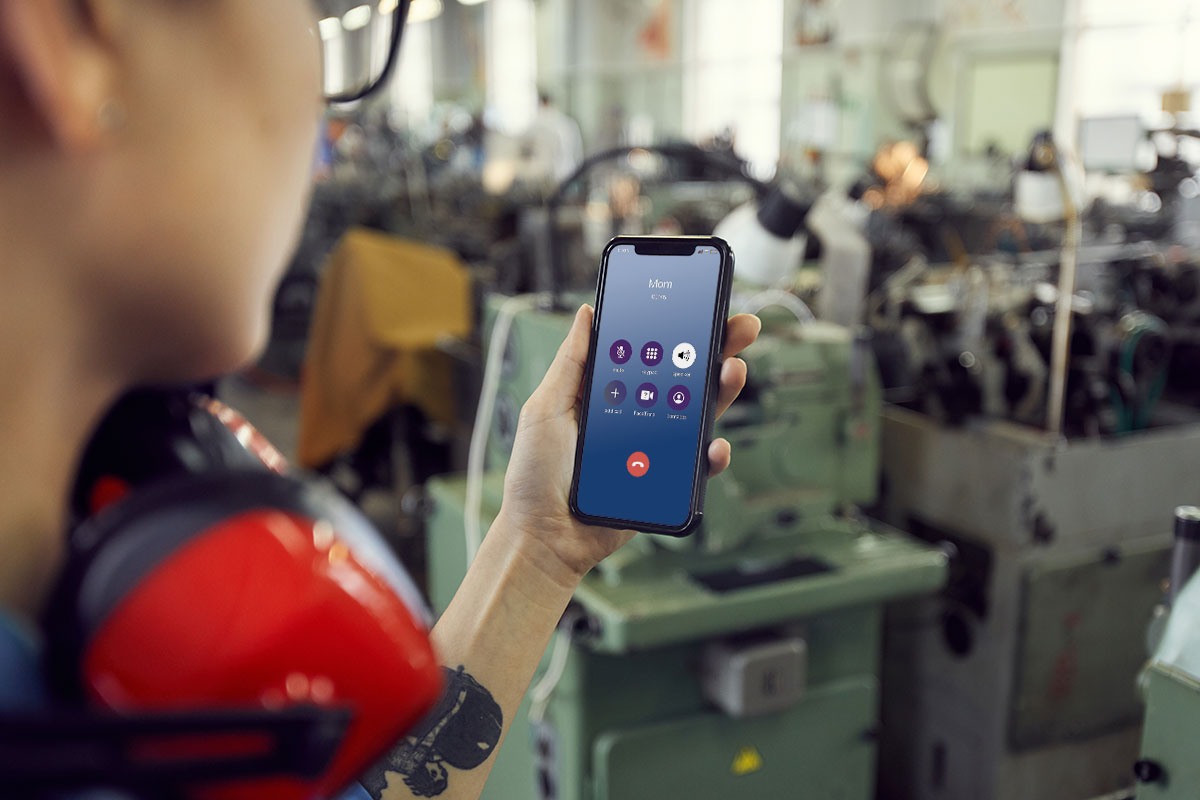
Manufacturing Risk Insights
Sound Advice on Eliminating Distractions from the Workplace
It is a well-established fact that the use of a cellphone while driving presents a distraction that greatly increases the chance for an accident. This has led a growing number of states to implement laws that prohibit drivers from the “hands on” use of a cell phone while operating a vehicle.
Unfortunately, what too many people fail to take into consideration is how distracting cell phones and other electronic devices can be in the workplace.
In an industry of moving machinery and equipment, manufacturing workers are especially susceptible to on-the-job injury. They need to be alert at all times, as even the smallest slip-up can cause an accident. Not only can inattentive workers injure themselves, but their carelessness can also endanger others. In this type of work environment, it’s easy to see the importance of minimizing potential distractions faced by your employees, including the use of cellphones and mp3 players.
Cellphones: Whether it’s talking or texting, cellphone use can prevent workers from focusing on their tasks. Having to hold the phone in one hand compounds the problem, but even using a hands-free device does not allow for full concentration. Studies indicate that the act of talking on the phone is distracting regardless of whether the user is physically holding the device or not.
While some employees may need to use a work cellphone as part of their job, it is best to place restrictions on when and where those phones can be used. Personal cellphones should not be allowed on the manufacturing floor at all, as even the momentary distraction of a call or message alert can potentially lead to an accident. Employees should not have phones on their person during work hours unless they are on a break from their duties and are in a designated break area.
Mp3 and Other Music Players: There are a variety of audio cues that alert workers to what is happening around them. Unfortunately, when an employee’s hearing is impaired by music, a shout from a coworker, an odd sound from a malfunctioning machine or the backup alarm on a truck or forklift can be easily missed. Besides limiting the ability of workers to hear what is going on around them, there is also the potential distraction of operating the device – such as adjusting the volume or switching songs – which can take focus away from the task at hand.
A Note Regarding the Potential for Hearing Loss
In a manufacturing setting, it is not uncommon for there to be high noise levels that require proper ear protection to prevent hearing loss. The use of cellphones, hands-free devices and headphones can interfere with an employee’s proper use of protective equipment. Even though such devices may cover the ear, most are not meant to provide hearing protection.
In fact, in noisy situations, devices that administer sound directly into the ear increase dangerous levels of noise exposure as employees turn up volume levels to drown out background noise. The combination of these noise exposures greatly increases the rate of hearing loss, which in turn increases the chance for occupational hearing loss claims.
Consider an Electronics Usage Policy
Attentive, focused employees are essential to creating a safe work environment, which is why it’s important to eliminate possible distractions. Prohibiting employee use of personal electronic devices can aid in reducing workplace accidents. To clearly state your company’s rules on when and where usage is restricted, institute an electronics usage policy. Once instituted, train your employees in the policy requirements and make sure restrictions are diligently enforced.
Talk to a Workplace Safety Professional
To learn more about eliminating electronic distractions from the workplace and other safety tips for the manufacturing industry, talk to the safety experts at VTC Insurance Group. You can reach us at 248.828.3377 or visit vtcins.com.
This blog is for informational purposes only and is not intended as legal advice.


